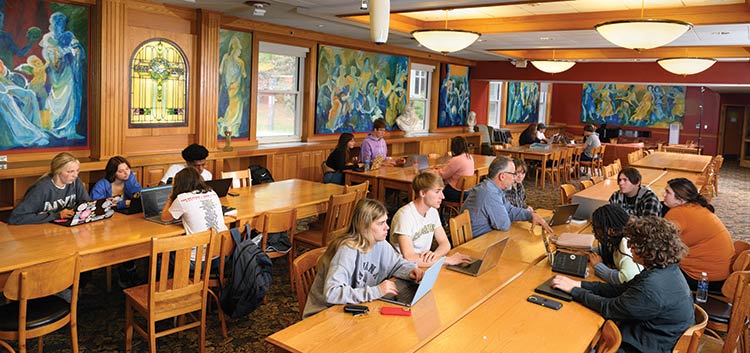
In Whitmyre Hall’s Great Room
Students, Alumni, Officials Discuss Learning Community’s Future
By Sara Stewart
In 1996, the Cook Honors College was established at IUP with a bold objective: to carve out a space on campus in which several hundred students at a time could immerse themselves in a rigorous, communal learning experience. Small classes would prioritize intellectual inquiry and debate, set within a living-learning culture that would create a connected, supportive student community.
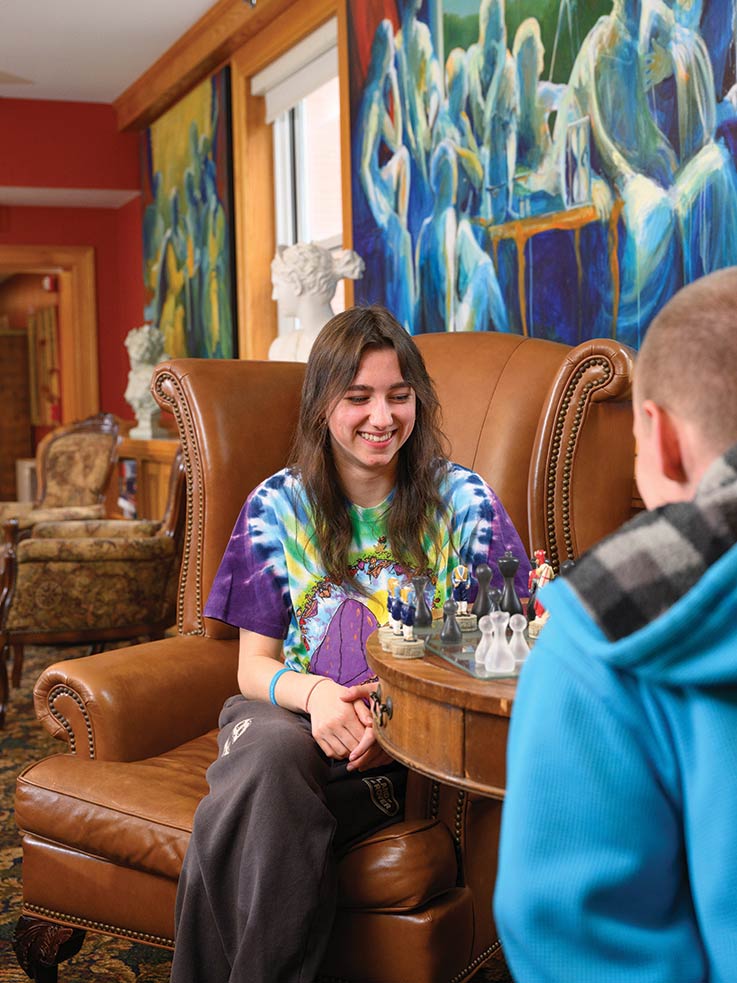 It was also, crucially, an invitation to distinguished students who were the first in their families to go to college. “The Honors College was set up with first-generation students in mind. That was important to founder Robert Cook [’64],” said Director Chauna Craig. “It was to give students who had not had the opportunity to get into a world where ideas were front and center to grow into that and to become leaders. They’re sitting at a table with 19 other students of very different majors and backgrounds, all of whom are interested in ideas and passionate discussion.”
It was also, crucially, an invitation to distinguished students who were the first in their families to go to college. “The Honors College was set up with first-generation students in mind. That was important to founder Robert Cook [’64],” said Director Chauna Craig. “It was to give students who had not had the opportunity to get into a world where ideas were front and center to grow into that and to become leaders. They’re sitting at a table with 19 other students of very different majors and backgrounds, all of whom are interested in ideas and passionate discussion.”
More than a quarter-century later, CHC’s mission is thriving. Moving forward, it also stands to gain from a university-wide focus on student-centeredness, aimed at adapting resources to help all students be engaged and successful. Long-range plans for the Honors College will be shaped in part by input from current students and from alumni who remember their years there as profoundly formative.
“It was a great experience for me, intellectually and personally,” said Erika Jackson, a May graduate now enrolled in IUP’s School Psychology PhD program. The Honors College “created a space where you knew you would be challenged, not so you could quickly defend yourself, but to learn more and to be open to learning other ideas. I had to challenge my own beliefs, and I think these inner questions are common with students in CHC.”
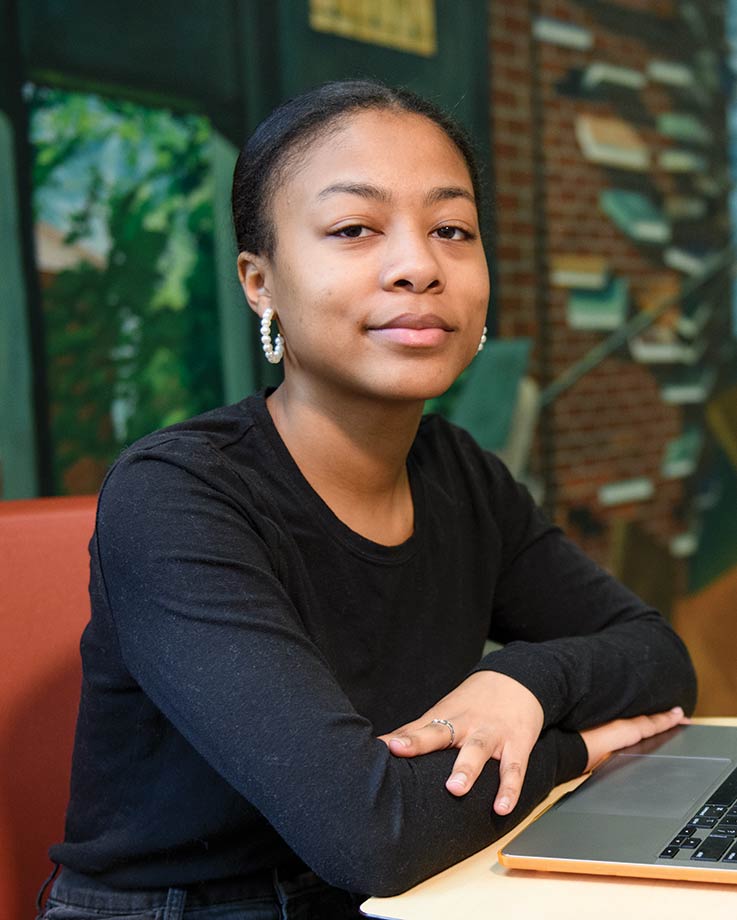
Erika Jackson
Caio Gomes, a May graduate who began his first year at Yale Law School this fall, said his CHC education prepared him well for this new venture. “At law school, they implement the Socratic method, focused on the students themselves asking questions,” he said. “Being in the Honors College made me open my mind. When you’re listening in class, you want to understand other people’s perspective, versus listening just because someone wants you to come up with an answer.”
Honors College senior Dan Kukula, who is double majoring in regional planning and political science, values the close connections he has forged both with fellow CHC students and with faculty members. “I still know, and am friends with, a lot of professors from all over the university. You get to have [thesis paper] conferences with them. You really get to learn what they think and to share your ideas as well.”
Kukula said the living-learning community was instrumental in building close ties within his cohort. “Living with everyone from the Honors College was really important, especially in my first year. Some of my closest friends from IUP came from hanging out in [the residence hall] together. We really had a whole community in that hallway.”
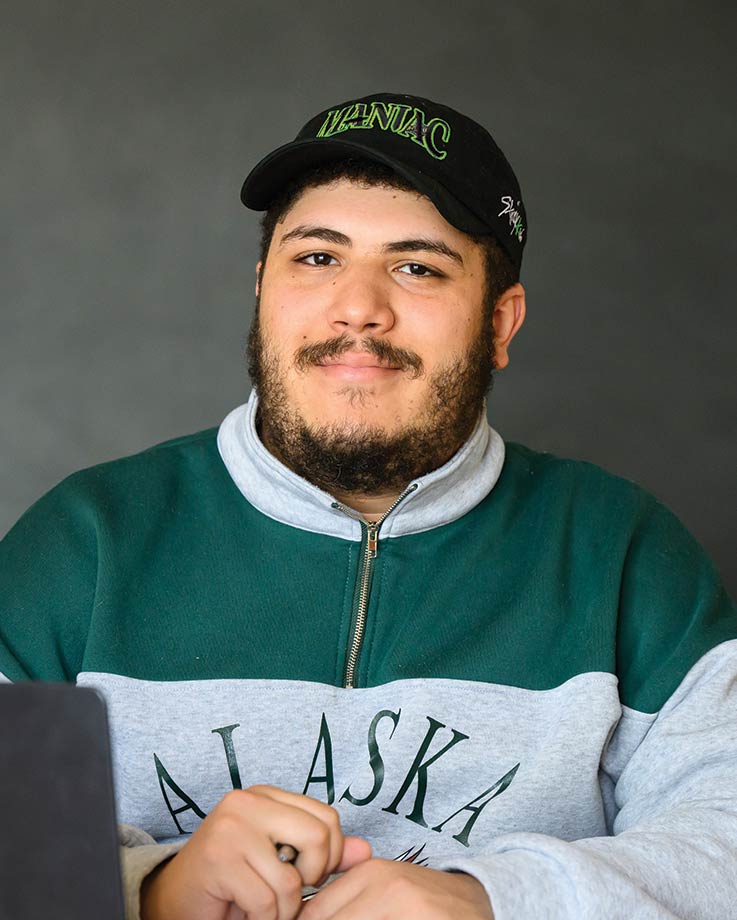
Caio Gomes
“The living-learning community is one of the strongest elements of the Honors College,” said Provost and Vice President for Academic Affairs Lara Luetkehans. “It provides a strong sense of community and an immersive experience for students in developing relationships. I often hear phrases like ‘finding like people.’”
In Kukula’s first year, the community lived in Stephenson Hall so students could spread out during the pandemic. But most CHC students, like 2013 graduate Luke Piper, now a psychiatrist with UPMC, got their start in Whitmyre Hall.
“The building itself integrates student living spaces with common areas and academic spaces,” said Piper, who lived in Whitmyre through his junior year. “It aims to reflect the great philosophical schools of ancient Greece by encouraging students to congregate within their learning environment,” not just to socialize, but to advance discussions from their core coursework.
After the 2023–24 academic year, Whitmyre was decommissioned as a residence for Honors College students. But maintaining the close-knit community is as strong a priority as ever.
“Just like we did during COVID, our [first-year] students are still required to live together in a living-learning community, but they’re on a couple of floors of Wallwork Hall, which is the closest hall to Whitmyre,” Craig said.
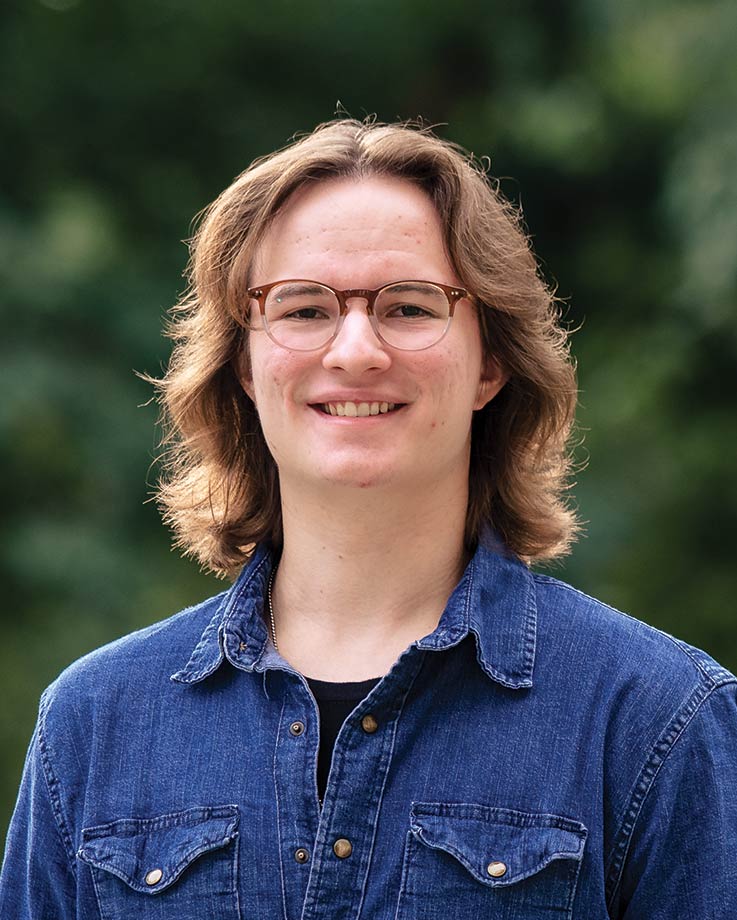
Dan Kukula
Constructed in 1952, Whitmyre underwent a cosmetic renovation in 2018 and ’19, but it would need more significant updates to continue in the long run. The university’s 2023–24 Long-Range Facilities Master Plan, in its six- to nine-year outlook, includes recommendations to renovate a student housing space to meet the Honors College’s “unique requirements” and, subsequently, to demolish Whitmyre Hall.
“Our students are changing,” Luetkehans said. “Their interests and their needs are changing.” Incoming students, she said, desire more privacy in their accommodations, which is at odds with Whitmyre’s traditional shared-room layout.
A March-April 2024 survey, “Strengths, Opportunities, Aspirations, and Results Assessment,” featured responses from 125 students and 26 faculty and staff members. They were “overwhelmingly positive,” Luetkehans said, “but students would respond with, ‘I loved everything about it but the living piece.’ And, for some of our students who are transgender or nonbinary, it’s particularly challenging because there just aren’t enough singles.”
At the same time, “one of the strongest things [reflected in the feedback] was that tight living-learning community,” Craig said. “The Whitmyre attachment is very strong with alumni, probably more so than with current students. Only a few [current students] have actually lived in this building, but they do love having quick and easy access to the director, the associate director, and the faculty. That’s something students would really like to see retained in some sense.”
Alumni and students also expressed their appreciation for the Honors College’s administrative assistant, Lisa Halmes—“She was our mom!” Gomes said—and associate director Kevin Berezansky. As a part of IUP’s new student success infrastructure, both Halmes’s and Berezansky’s roles have changed.
“Lisa kind of took on the mother hen role within CHC,” Luetkehans said. “When people were living in Whitmyre, they would go to her for their needs. Now that they’re not living there, the flow of information seeking has changed, so Lisa is deployed in a broader fashion.”
Berezansky’s role has similarly changed. “He still provides some support in the Honors College,” Luetkehans said, “but he’s now part of Academic Success.”
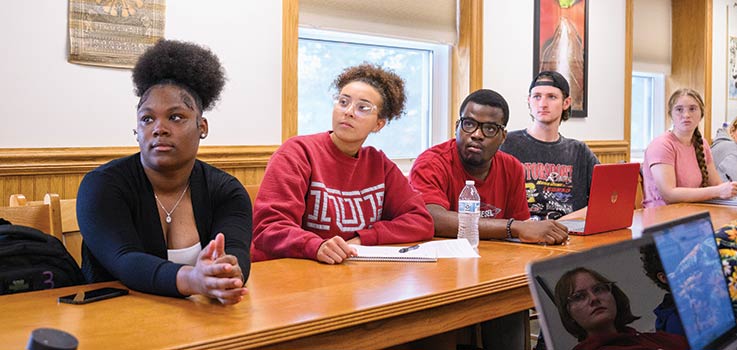 As plans advance, Kukula hopes the university will take into account the impact Whitmyre’s design and layout have on the student experience. “I think it’s crucial to mirror that space, wherever [the new building] is,” he said. “Whitmyre is specifically designed to have rooms that are collaboration intensive, a lot of study spaces, a lot of areas for events and activities. It doesn’t feel like just another academic building; it has its own specific vibe. Regardless of where [the community] moves, the most important thing is recreating those spaces and opportunities.”
As plans advance, Kukula hopes the university will take into account the impact Whitmyre’s design and layout have on the student experience. “I think it’s crucial to mirror that space, wherever [the new building] is,” he said. “Whitmyre is specifically designed to have rooms that are collaboration intensive, a lot of study spaces, a lot of areas for events and activities. It doesn’t feel like just another academic building; it has its own specific vibe. Regardless of where [the community] moves, the most important thing is recreating those spaces and opportunities.”
He also mentioned his love of the themed art in Whitmyre, a sentiment Jackson echoed. “Its cultural artifacts and art are vital to alumni,” she said, “and should be preserved in some way.”
Whatever form the Honors College takes, Piper hopes “it captures the essence that made the program so transformative for me and many, many alumni.” For him, that means maintaining the curriculum and aesthetics and integrating the living and learning spaces, he said.
For now, the provost said, students attend honors college classes and community events in Whitmyre. Their residence, Wallwork Hall, is a few hundred feet away, opposite the HUB and former Keith parking lots.
“We’re in this hybrid place,” Luetkehans said. “We still have the Great Room. We have the seminar-style classrooms that support honors curriculum. We have community study spaces. We have created a space [within Wallwork] that will cluster the honors students but in the suite style.”
One thing that will remain the same is the small class sizes and the number of students—approximately 100 per class year. CHC notes on its website that the average honors college has around 1,400 students, according to U.S. News & World Report, while it has 400.
Gomes said the intimate classes were a significant contributor to his ability to articulate his opinions. “For every single core class I had, there was always someone I knew, and I already felt comfortable in the environment,” he said. “It got me accustomed to speaking more frequently, to giving my thoughts. I imagine it would have been a lot more intimidating for those of us who wanted to come out of our shell if that class was 500 people.”
Gomes embodies CHC’s goals, Craig said. “He took advantage of everything the Honors College offered. He wanted to be able to move on to big things, and he did. That’s one of the things I believe in most about this place: it is what you make of it.”
She said the Honors College will continue to make good on that mission. “We have very dedicated resources, including our staff, who are there for people who want to take advantage of everything and do all kinds of cool stuff and get some financial assistance in doing it.”
Another area of focus is increasing diversity, a goal Jackson strongly supports. “As a Black woman in a predominantly White space, it seems racially more isolated than the campus as a whole,” she said. “However, I have seen more conversations about race and ethnic diversity within the program. I truly encourage this effort.”
According to Luetkehans, the Honors College has “done some really nice outreach and built some pathways from particular geographic regions, particularly [Philadelphia suburb] Kennett Square, and has been able to recruit quite a few students from the eastern side of the state who come from Latinx backgrounds. We would love to create more of those kinds of partnerships and areas of recruitment.”
Ultimately, she said, the university is committed to preserving the Honors College’s core mission while rolling out changes to benefit its future scholars.
“Our alumni of five, 10, 20 years ago have really warm feelings about their own experience, and students have different needs today,” Luetkehans said. “We need to bring the best of those experiences forward, while respecting the needs of today’s students, to create the Cook Honors College of tomorrow.”
Send questions about the future of the Cook Honors College by email to iup-magazine@iup.edu. University officials will respond.